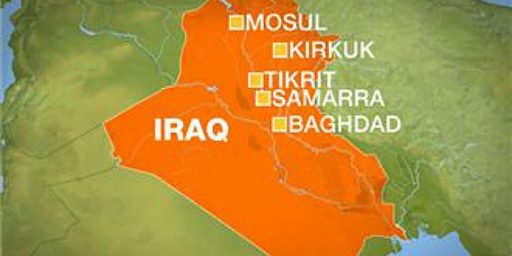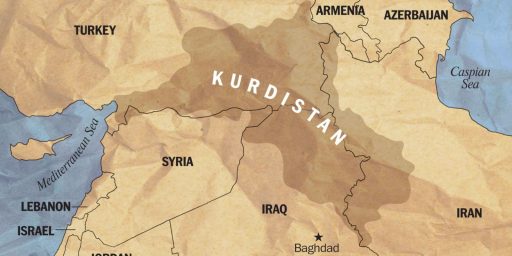Federalism Emerges as Deal-Breaker in Iraq
Federalism Emerges as Deal-Breaker in Iraq
As the deadline neared to approve an Iraqi constitution, Shiite and Kurdish leaders agreed on the name of the country, Islam as the state religion and what to do about Kurds displaced from the ethnically-mixed city of Kirkuk, a Kurdish legislator said. But Sunni Arab politicians were pessimistic of reaching a deal by the Monday deadline, with one, Saleh al-Mutlaq, saying discussions “need divine intervention.”
Iraq’s three major Sunni organizations appeared to have taken a united stand both for voting and against demands for federalism after they boycotted the Jan. 30 parliamentary elections.
The Kurdish minority has demanded federalism be enshrined in the constitution to protect the regional self-rule it has enjoyed in the north since 1991. Many Sunni Arabs, a formerly dominant minority, oppose federalism, fearing it would lead to the breakup of Iraq.
Mahmoud Othman, a Kurdish legislator, said late Friday that Shiites and Kurds have agreed that the country be called the Iraqi Federal Republic and that Islam be the religion of the state. Kurds from Kirkuk would receive compensation or be permitted to return to city, Othman said.
Othman said Shiites and Kurds, who hold majority seats in parliament, had offered concessions to each other, but said disagreements with Sunni Arabs had been more difficult to resolve.
[…]
During a speech Thursday to cheering crowds in the city of Najaf, Abdul-Aziz al-Hakim, leader of the country’s biggest Shiite party, called for a Shiite federal state, saying it was needed “to keep a political balance in the country” after decades of dictatorship under Saddam Hussein.
Al-Hakim’s comment drew a strong response from Sunni clerics throughout Iraq during Friday sermons. The clerics urged followers Friday to register and vote against a constitution that enshrines federalism.
At the Kmeira Mosque in Baghdad’s northern neighborhood of Rashdiyah, about 500 Sunni Arabs gathered to listen to Sheik Ayad al-Izzi say “we reject these calls (for federalism) and we look to them with suspicion.”
[…]
The Sunnis appear to be sending a warning that they can bring down the constitution in the Oct. 15 referendum. According to the country’s interim charter, the constitution will be void if it is rejected by two-thirds of voters in three provinces.
Sunnis are a majority in the provinces of Anbar, Salahuddin, Ninevah and Diyala.
Al-Izzi, of the Kmeira Mosque, said “don’t sit at home because by staying at home it means you are accepting. We will say no to anything that contradicts with our religion and we will say no to anything that leads to splitting the country.”
It would be bizarre indeed if this were the issue that caused the process to fail. Along with probably every political scientist in the country, I took it for granted that federalism was a necessary element for a follow-on government.
The United States Constitution would not have been agreed to without it and the original thirteen states had a much more benign relationship than do the Iraqi factions. We never had a dictator from North Carolina gas thousands of people in Massachussets or slaughter thousands of Georgians, after all.




